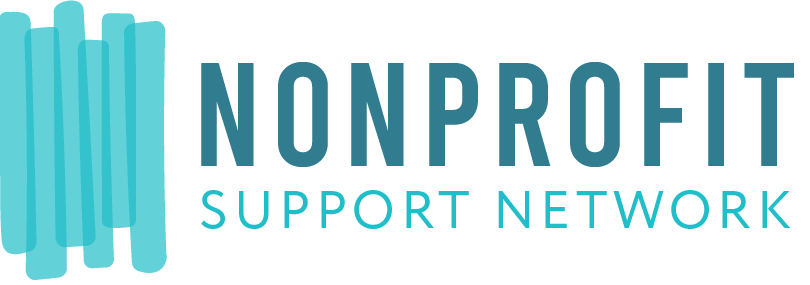An HR Q&A with Kourtney McCauliff
Kourtney McCauliff, VP Human Resources, Open Door Health Services
Nonprofit organizations often have small teams and limited resources, which can make it challenging to manage HR-related functions effectively. This is where HR becomes essential for nonprofits. By providing guidance and support to staff members, HR professionals can help create a positive workplace culture and foster a sense of community and belonging among team members.
To get a better understanding of our community's position on human resources, we sat down with Kourtney McCauliff, an experienced HR professional in Delaware and Madison County.
What is your nonprofit HR experience?
Currently, I work with a nonprofit organization in Delaware and Madison County. I also serve on the board of the East Central Indiana HR Association, which is a nonprofit as well, and many members on the board come from the nonprofit sector within the East Central Indiana area. During the COVID-19 pandemic, I had the chance to connect with several nonprofit directors and HR leaders to assist them in navigating the updated policies and regulations surrounding remote work, health concerns, time off, and other related matters.
Why do you think HR is important for nonprofits?
I believe that HR is oftentimes an underutilized skill set. Many nonprofits engage in HR functions without acknowledging or recognizing that it's the work they are doing. In smaller teams, individuals may take on tasks such as hiring, termination, benefits management, and payroll management. While they may have some aspects of that skill set from previous experiences, they may not have had access to full HR training. Sometimes, smaller entities such as teams, organizations, and businesses need an HR focus even more than larger ones because they are navigating these things at such a fast pace but without a big team of people. It's important to have expertise and guidance for people doing those tasks in their day-to-day operations.
What are the overlooked aspects of HR for nonprofits?
Many nonprofits operate with smaller teams or departments. When the team is in sync, it can foster stronger connections among its members, leading to a more productive and cohesive workplace. However, things can quickly become complicated when problems arise, and it can be tough to take a step back and view things from an HR perspective. For instance, creating and implementing policies and procedures, even for a team of 5 or 10, can be difficult to backtrack if not done correctly. This can lead to confusion and subjectivity among workers, which may affect productivity and morale.
How does HR impact nonprofit staff?
In today's work environment, employees value interpersonal relationships more than ever. That's why human resources are crucial to building company culture, unity, and growth. But growth doesn't always mean moving up the ladder; it can also mean developing skills within a current role. Soft skills are essential in the nonprofit sector, where benefits might be limited. That's where the company culture can make up for it by supporting employees' professional development. In smaller nonprofits, the HR role is even more critical for providing clear guidance and support to employees. People may feel more comfortable seeking help from HR than from the executive director, who may seem intimidating.
Explain how human resources shared services operate.
Open Door has dreamt of this concept for some time now. Luckily, we have an extensive management team to offer expertise to nonprofits that don’t have the same bandwidth. It’s important to have a network where you can lean on experts, and other nonprofits, to connect and answer questions. A network and support system is crucial for individuals to feel supported, even if they are part of a team of one to three people.
In this community we are all rooting for each other—we are only as successful as our community is successful as a whole.
If you had a question, there may be resource guides or places to look on your own with limited interaction but then there would be a next layer of an HR professional, legal professional, finance professional, Carly Acree-King [Nonprofit Support Network] herself, where someone can share their questions and there could be three or four different areas where they could route an individual. Having a starting point when the question feels overwhelming and guidance is needed.
How can Muncie/Delaware County nonprofits benefit from dedicated HR resources?
Shared services allow for help and support when needed which is great for small teams. As an organization starts to grow that's when they bring someone in-house, but having shared services allows for someone to always have that resource available. Knowing you have someone to reach out to in a case-by-case situation that can offer support and guidance is a big sigh of relief.
What are some local HR resources?
I am a member of ECIHRA of ECIHRA (East Central Indiana HR Association). This is a group of HR leaders that have helpful resources, monthly training, and networking opportunities. ECIHRA is affiliated with SHRM which is a national organization that often offers free resources. (Nonprofit Support Network has a membership!)
As we know, HR plays a crucial role in the nonprofit sector, impacting staff retention, job satisfaction, and performance. Shared services can help smaller nonprofits access HR resources and expertise they might not have on their team. Kourtney is a fantastic resource to our community with her experience and passion.
Nonprofit Support Network is excited to partner with Kourtney and the expertise that she can provide to Muncie and Delaware County.
Meet the Author: Maggie Weaver
Maggie Weaver is a senior at Ball State University majoring in public communications and marketing. Maggie is Nonprofit Support Network’s inaugural Communications Intern.


